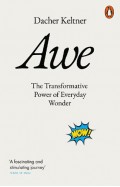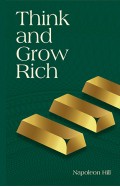The Power Paradox
By: Dacher Keltner
-
Rs 1,160.00
- Rs 1,450.00
- 20%
You save Rs 290.00.
Due to constant currency fluctuation, prices are subject to change with or without notice.
It shapes every interaction we have, whether we're trying to get a two-year-old to eat green vegetables or ask for a promotion at work. But how do we really gain power? And what does it do to us?
As renowned psychologist Dacher Keltner reveals, the new science of power shows that our Machiavellian view of status is wrong. Influence comes not to those who are ruthless, but to those with socially intelligence and empathy. Yet, ironically, the seductions of success lead us to lose those very qualities that made us powerful in the first place. Keltner draws on fascinating case studies to illuminate this 'power paradox', revealing how it shapes not just companies and elections but everyday relationships. As his myth-busting research shows, power - and powerlessness - distorts our behaviour, affecting whether or not we will have an affair, break the law, drive recklessly or find our purpose in life.
In twenty original 'power principles', Keltner shows how we can retain power by maintaining a focus on others. By redefining power as the ability to do good, The Power Paradox turns everything we know about influence, status and inequality upside down.
| Book | |
| What's in the Box? | 1 x The Power Paradox |
It shapes every interaction we have, whether we're trying to get a two-year-old to eat green vegetables or ask for a promotion at work. But how do we really gain power? And what does it do to us?
As renowned psychologist Dacher Keltner reveals, the new science of power shows that our Machiavellian view of status is wrong. Influence comes not to those who are ruthless, but to those with socially intelligence and empathy. Yet, ironically, the seductions of success lead us to lose those very qualities that made us powerful in the first place. Keltner draws on fascinating case studies to illuminate this 'power paradox', revealing how it shapes not just companies and elections but everyday relationships. As his myth-busting research shows, power - and powerlessness - distorts our behaviour, affecting whether or not we will have an affair, break the law, drive recklessly or find our purpose in life.
In twenty original 'power principles', Keltner shows how we can retain power by maintaining a focus on others. By redefining power as the ability to do good, The Power Paradox turns everything we know about influence, status and inequality upside down.
Awe - The Transformative Power of Everyday Wonder
By: Dacher Keltner
Rs 2,795.00 Ex Tax :Rs 2,795.00
Zubin Mehta: A Musical Journey (An Authorized Biography)
By: VOID - Bakhtiar K. Dadabhoy
Rs 840.00 Rs 1,050.00 Ex Tax :Rs 840.00
How To Crack An Egg With One Hand: A Pocketbook For The New Mother
By: Francesca Beauman
Rs 3,895.00 Ex Tax :Rs 3,895.00
Wired For Joy: A Revolutionary Method For Creating Happiness From Within
By: Laurel Mellin
Rs 4,495.00 Ex Tax :Rs 4,495.00
Lovebirds How to Live with the One You Love
By: Trevor Silvester
Rs 1,196.00 Rs 1,495.00 Ex Tax :Rs 1,196.00
Love in the Time of Algorithms: What Technology Does to Meeting and Mating
By: Dan Slater
Rs 895.50 Rs 995.00 Ex Tax :Rs 895.50
Mixed Up Love Relationships Family and Religious Identity in the 21st Century
By: N/A
Rs 1,345.50 Rs 1,495.00 Ex Tax :Rs 1,345.50
The Mindfulness Colouring Book : Anti-stress Art Therapy for Busy People
By: Emma Farrarons
Rs 2,495.00 Ex Tax :Rs 2,495.00
No recently viewed books available at the moment.
Zubin Mehta: A Musical Journey (An Authorized Biography)
By: VOID - Bakhtiar K. Dadabhoy
Rs 840.00 Rs 1,050.00 Ex Tax :Rs 840.00
Awe - The Transformative Power of Everyday Wonder
By: Dacher Keltner
Rs 2,795.00 Ex Tax :Rs 2,795.00















-120x187.jpg?q6)
















